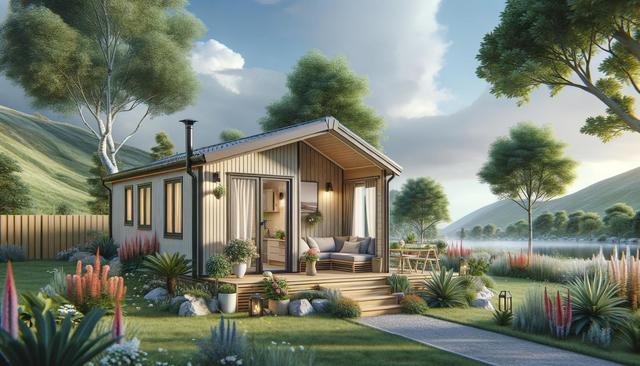Understanding Mobile Homes and Their Benefits
Mobile homes are an increasingly popular housing option for individuals and families looking for affordable, flexible living. Unlike traditional site-built homes, mobile homes—also known as manufactured homes—are constructed in a factory setting and transported to the desired location. This process allows for greater cost control and faster construction times. Especially for older adults, these homes can offer a comfortable and manageable living environment. For those exploring options like senior mobile homes for sale near {city}, the appeal lies in affordability and ease of maintenance, making them ideal for retirees or those looking to downsize.
Key advantages of mobile homes include:
- Lower upfront costs compared to traditional homes
- Flexible placement in communities or on private land
- Variety of floor plans and layouts
- Energy-efficient build options
Many communities also focus on specific demographics, such as affordable senior trailer parks with 1–4 bedroom units near {city}, providing tailored amenities and quiet surroundings suited for retirement living. These communities often come with features like clubhouses, walking trails, and social events to enhance the lifestyle.
Budgeting for Your Mobile Home Purchase
One of the main advantages of purchasing a mobile home is affordability, but a clear budget is essential for success. The total cost will depend on several factors, including the size of the home, the features included, the location, and whether you’re placing it in a park or on private land. For example, comfortable senior living mobile homes in {city} with financing often come with flexible payment plans to accommodate fixed retirement incomes.
When planning your budget, consider the following:
- Base price of the mobile home
- Delivery and setup fees
- Land costs or rental fees in a mobile home park
- Utility hookups and permits
- Optional upgrades or customizations
Financing options are available through lenders experienced in manufactured housing. These may include personal property loans (chattel loans) or mortgages if the home is permanently installed on owned land. Understanding your financing choices helps you make informed decisions and avoid unexpected expenses.
Choosing the Right Size and Layout
Mobile homes come in a range of sizes from single-wide models, which are compact and efficient, to double-wide or even triple-wide units that offer more space. If you’re searching for spacious senior mobile homes in {state} for retirement living, you’ll find many options that include open-concept kitchens, accessible bathrooms, and multiple bedrooms to accommodate guests or caregivers.
When selecting a floor plan, consider your current and future needs:
- Number of bedrooms and bathrooms
- Storage space and closet size
- Accessibility features like ramps or walk-in showers
- Living and dining space for entertaining
Some layouts are designed specifically with seniors in mind, prioritizing ease of movement, low-maintenance surfaces, and natural lighting. Many communities offer model tours so you can explore different floor plans before committing.
Customizing Your Mobile Home
One of the appealing aspects of mobile home ownership is the ability to customize your living space. From finishes and materials to appliances and built-in features, you have plenty of options to create a home that fits your preferences. Even on a budget, you can update flooring, add energy-efficient windows, or install a carport or deck for outdoor enjoyment. For those seeking retirement mobile homes with modern amenities, manufacturers often offer upgrade packages that include smart home features, high-efficiency HVAC systems, and luxury finishes.
Customization ideas include:
- Upgrading kitchen cabinets and countertops
- Installing walk-in tubs or grab bars in bathrooms
- Adding skylights or larger windows for more natural light
- Choosing energy-efficient appliances
While some customizations can be done after purchase, working with the builder to include these features during construction can be more cost-effective and ensure they’re integrated properly.
Setting Up and Moving In
Once your mobile home is purchased and customized, the next step is preparing the site and setting up the home. This process includes transporting the home to the site, securing it to a foundation, and connecting utilities such as water, electricity, and sewer. If you’re moving into a mobile home park, much of this work may already be handled by the property management. For those interested in affordable senior trailer parks with 1–4 bedroom units near {city}, many communities offer move-in ready homes or assistance with setup.
Before moving in, ensure the following steps are completed:
- Obtain necessary permits and inspections
- Verify utility connections are properly installed
- Inspect the home for any transport damage
- Secure insurance for your mobile home
Once everything is in place, you can begin furnishing and decorating your new space. Many find the transition to mobile home living surprisingly smooth and rewarding, especially when choosing a community that aligns with their lifestyle needs.
Conclusion: A Smart Path to Comfortable Retirement Living
Mobile homes offer a practical and affordable path to homeownership, especially for those entering retirement or seeking a simpler lifestyle. Whether you’re exploring senior mobile homes for sale near {city} or looking into spacious senior mobile homes in {state} for retirement living, today’s options are far from basic. With careful budgeting, thoughtful customization, and a clear understanding of the setup process, you can create a home that supports your needs and enhances your quality of life. Take time to explore the available choices and consider visiting communities in your area to find the right fit for your next chapter.




Leave a Reply